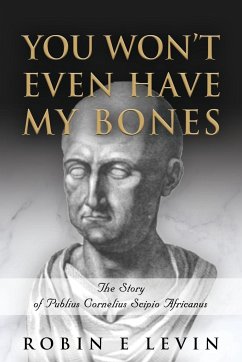Publius Cornelius Scipio Africanus was a critical figure in Western history. Without his accomplishments in the Second Punic War between Rome and Carthage, it is likely that Rome would never have become the dynamic power center that it did. The languages most Europeans speak and the religions most of us practice would be entirely different today. In 218 B.C. the Carthaginian General Hannibal brought an army of Mercenaries across the Alps and into Italy. His goal was to subdue Rome, the most powerful city in Italy. He won battle after battle until the Romans, under the leadership of Quintus Fabius Maximus Cunctator stopped meeting him in battle on his terms. The war became one of attrition, which Hannibal could not win. The war would have ended on very different terms, however, terms much more favorable to Carthage, if not for the accomplishments of one man: Publius Cornelius Scipio Africanus. Scipio was only seventeen when Hannibal invaded Italy. His father was the Roman Consul at that time. In the first conflict between Hannibal and the Romans, the Battle of Ticinus, the Romans were badly defeated. Young Scipio, however, showed his prowess by leading a cavalry charge from a hill and rescuing his wounded father who was about to be captured or killed. Two years later Scipio was a military tribune at the Battle of Cannae. This battle was an utter disaster for Rome, with fifty-five thousand Roman and allied soldiers killed. Scipio survived and afterwards rallied the survivors, forcing those who wanted to abandon Rome and take service with foreign kings to swear loyalty to Rome. After the Battle of Cannae, Scipio was determined to defeat Hannibal. To gain authority he ran for Aedile at the age of twenty-three. This made him eligible for the Roman Senate. After his father and uncle were killed at the Battles of the Upper Baetis in Spain, Scipio got himself assigned to lead the Roman legions in Spain. In four years he drove all of the Carthaginian forces from Spain, having conquered New Carthage, and having won battles at Baecula and Ilipa. Scipio then returned to Rome and ran for Consul at the age of 29. He planned an invasion of Africa despite the opposition of Fabius. His plan was that when the Roman army brought the war to Africa, the Carthaginians would summon Hannibal home to defend their city. Scipio and Hannibal met at the Battle of Zama in 202 B.C., and it was a decisive Roman victory, forcing Carthage into a treaty on Roman terms. Rome was now poised to conquer the civilized world. This book is an account of Scipio's life told in the first person. Despite his monumental accomplishments on behalf of Rome, Scipio is eventually brought down by one of his rivals, a man named Marcus Porcius Cato, or Cato the Elder. Cato accused Scipio's brother of financial malfeasance, and Scipio himself of bribery, charges that were totally unfounded. Scipio, enraged at this treatment, decided to leave Rome for Liternum one of the colonies he founded for his soldiers. He was in ill health and died two years later. When asked if he wanted to be buried in Rome, he replied "Ungrateful fatherland, you won't even have my bones."
Hinweis: Dieser Artikel kann nur an eine deutsche Lieferadresse ausgeliefert werden.
Hinweis: Dieser Artikel kann nur an eine deutsche Lieferadresse ausgeliefert werden.









